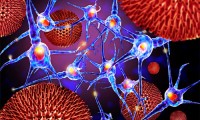-
Down’s syndrome research breaks new ground
- Source: Medicalxpress
- 609
- December 7, 2017
-
Researchers show aspirin added to cancer drug improves effectiveness
- Source: medicalxpress
- 593
- December 5, 2017
-
metaLinear Secures 255K Pound Seed Investment for Targeted Antibacterial Research
- Source: biocity.co.uk;
- 476
- December 1, 2017
-
Using digital pills, researchers find patients consume fewer opioids than expected
- Source: Drugdeliverybusine
- 419
- November 23, 2017
-
Stanford, NCI Researchers Discover New CAR-T Target With Early Study Data
- Source: biospace
- 572
- November 22, 2017
-
Cue Biopharma Announces Strategic Research Collaboration and License Agreement with Merck
- Source: biotech-365
- 532
- November 20, 2017
-
Researchers develop new probes to record neural activity in brain
- Source: medicaldevice-network
- 485
- November 15, 2017
your submission has already been received.
OK
Subscribe
Please enter a valid Email address!
Submit
The most relevant industry news & insight will be sent to you every two weeks.













